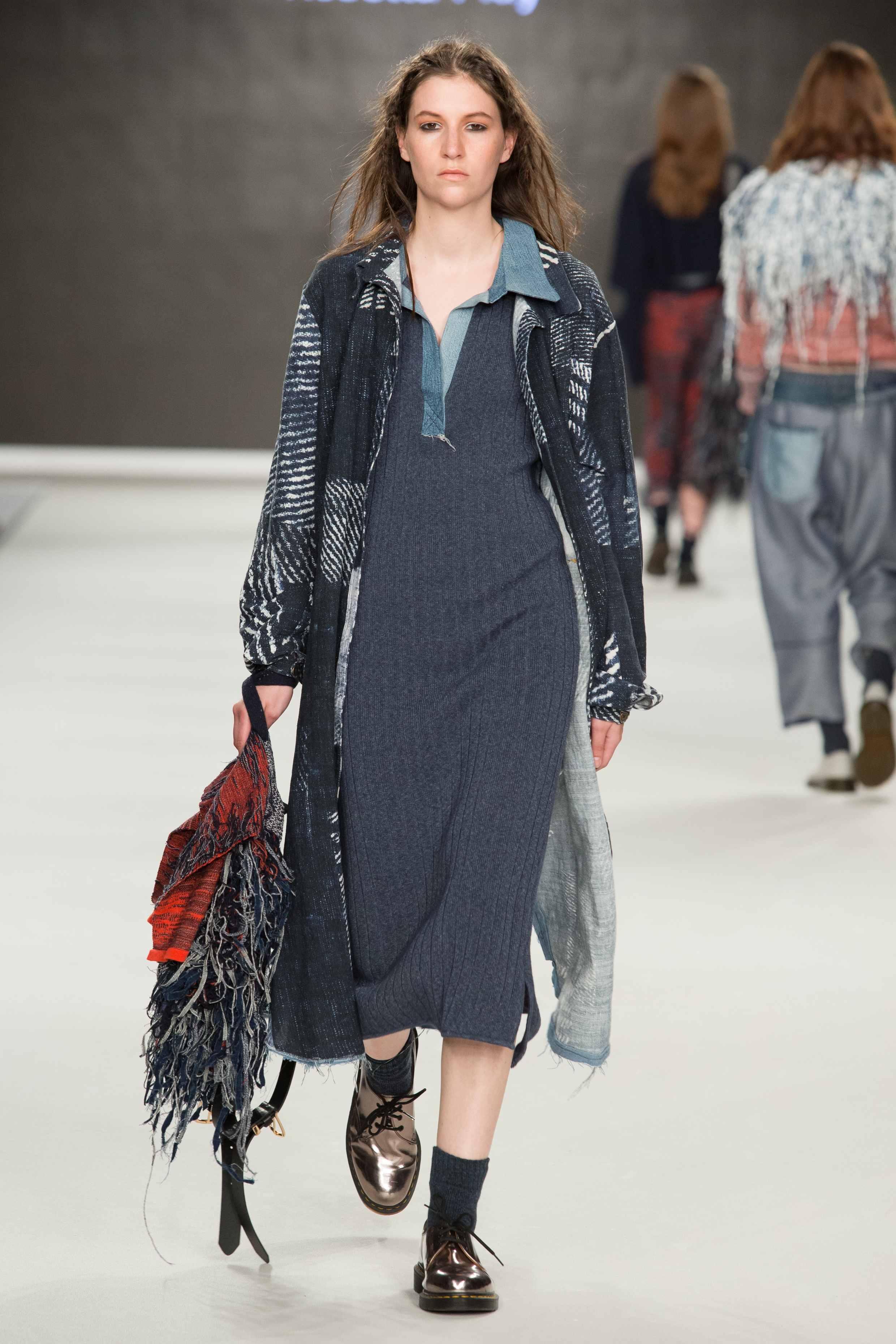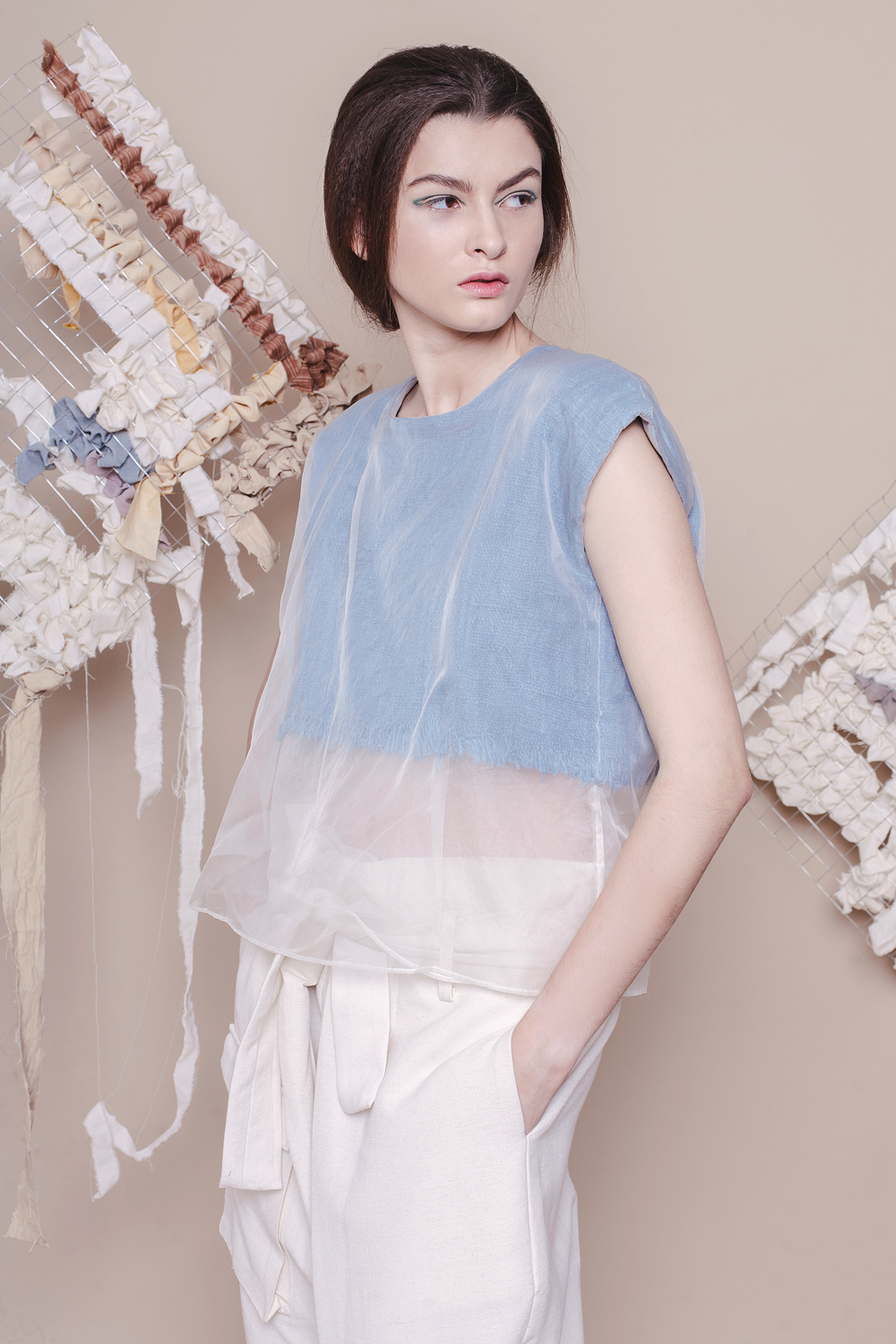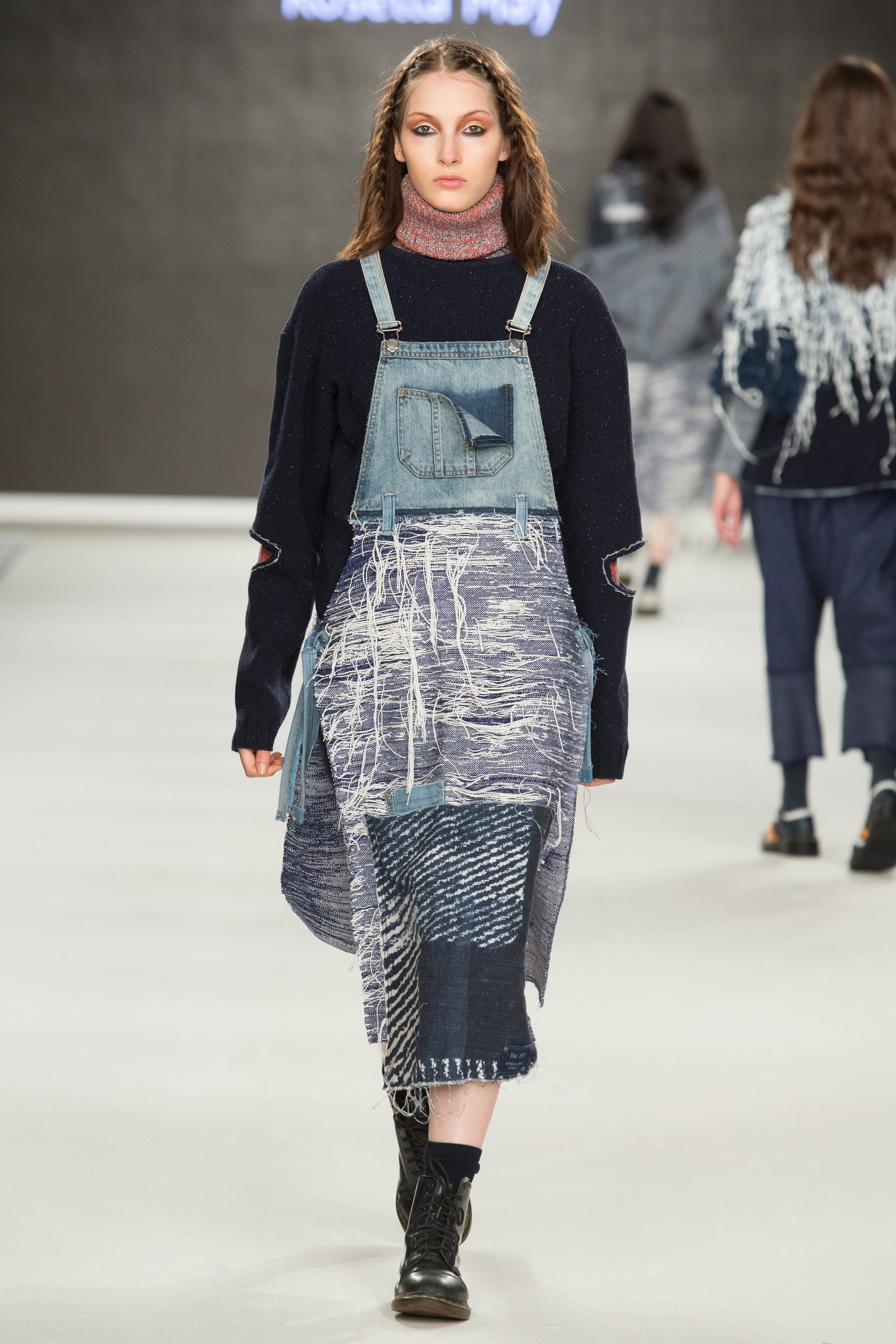We caught up with graduate of Nottingham Trent University and award winner at GFW25, Rosella May, to see what she's been up to since the long days of sewing and toiling to put together a collection to send down the catwalk in Truman Brewery. It's been a busy yet exciting year for the young designer- read on to find out more about her time working alongside SEO Jarkata in Indonesia, experiences designing within a different culture and what it's like to now be a junior denim designer at Calvin Klein!
After showing her graduate collection during Nottingham Trent’s GFW25 show, Rosella was selected as a winner of the international residency award, alongside Billie Jacobina from Rochester and both went to work in Indonesia. Rosella was placed with SEO Jarkata, which lead to showing their joint works in Seoul and China. The opportunities didn't stop there- Rosella had already accepted a place to work at a junior denim designer at Calvin Klein in Amsterdam.
Hiya Rosella, we’re so happy to catch up with you, it sounds like you've had a mad time since graduating! What have you been up to?
“After I made my graduate collection- I had such a hectic week after I finished the show! I had seen GFW come in and look at my work so it was quite intense for a while, so when I finally found out about that I had to make amendments to my collection, the hype became insane. After my show with Nottingham Trent, I spoke to so many people! Someone from Missoni spoke to me, and I was supposed to speak to Lucy Salter, who eventually did get in touch. The dean of my uni dragged me from one place to another”
Do you have any advice for recent or soon-to-be graduates, about making the most out of their GFW?
“People can get downhearted if they think that someone is meant to speak them and then they speak to someone else. That happened to me, but I emailed her a couple of times and we emailed for a little while. So that was really good, people need to push for Graduate Fashion Week more, because there wasn’t a job available at Calvin Klein, you need to make yourself known and GFW is a good way to do that”
Graduate fashion is always the most reflective of the experimental and new. Your work is often described as gender neutral or androgynous, do you think it's another trend, or does it have more political significance than that?
“I think it's getting into a time now, where people will wear what they want. I’ve got a brother that is the same age as me, and we will wear the same clothes. I think gender neutral dressing is something that's important to me, not because of the trend, but it's the mentality of it doesn't matter, be who you wanna be, boys can wear make up and you can wear a sports bra for the rest of your life if you like. I think looking at the recent runways, it's interesting, the change that's already happening- especially noticing the womenswear, there were so many pant suits, so that already almost a nod back and a move from androgyny”
Do you have a moment that's really stood out for you in the last year?
“One significant moment for me was the fact that I got my call for Calvin Klein whilst I was actually in my graduation ceremony! I had to whisper that I couldn't talk, but that they can talk to me- I was actually whispering during my graduation ceremony on the phone. Everybody around me was whispering ‘is that f****ng Calvin Klein?’ so people were turning round, and there was a lot of whispering, we were all celebrating together in silence!”
At Graduate Fashion Week, you won a residency, to go and work in Indonesia. What were your experiences like there?
“With the Indonesia residency, I was really lucky with the company I was working for (SEO Jarkata) because she's so driven and motivated. She applied for lots of other things alongside Jarkata Fashion Week, and that's how she got to showcase her collection in Seoul. The support from the British Council enabled me to go with her, and experience two international fashion weeks which was cool”
It must have been a culture shock, to go from designing in the UK to Indonesia. In what ways is the fashion industry different, and how is it similar?
“It's difficult to articulate the ways in which the industry in Indonesia differs from the UK. It's almost like a different bubble. In western culture we have a fashion that’s at forefront of everything itself. In Indonesia, religion has a much wider influence, fashion wants to be a big thing, yet at in the forefront of their culture is religion, and so they have to step back and consider it more. It's very clean, and there are elements that have to be thought about logically, so for example with the temperature, there are so many fabrics and things they can’t use. It’s much more innovative in that way- they can’t just laser cut nylon, because it's a synthetic fibre, if you burn something that's hand woven, it doesn't burn in the same way, it's just an open structure. It’s so weird, all the things that we use, all this modern technology, isn't always appropriate, but that's not to say they're stuck in the past, they're moving forward but in a different direction”
Rosella’s success is inspiring, in that she is living what every fashion student hopes for post-graduation. But she is reminded to be humble and work hard, as although she may be a junior denim designer at Calvin Klein, living in Amsterdam, her “dad still thinks I colour in for a living.”
Interview by Annabel Waterhouse-Biggins






